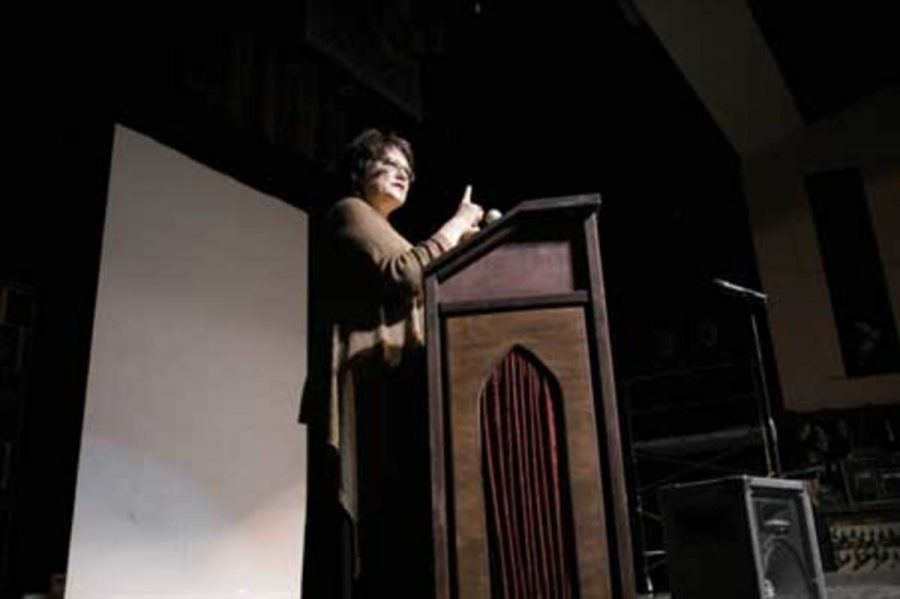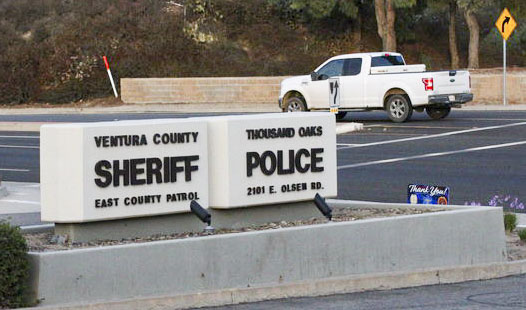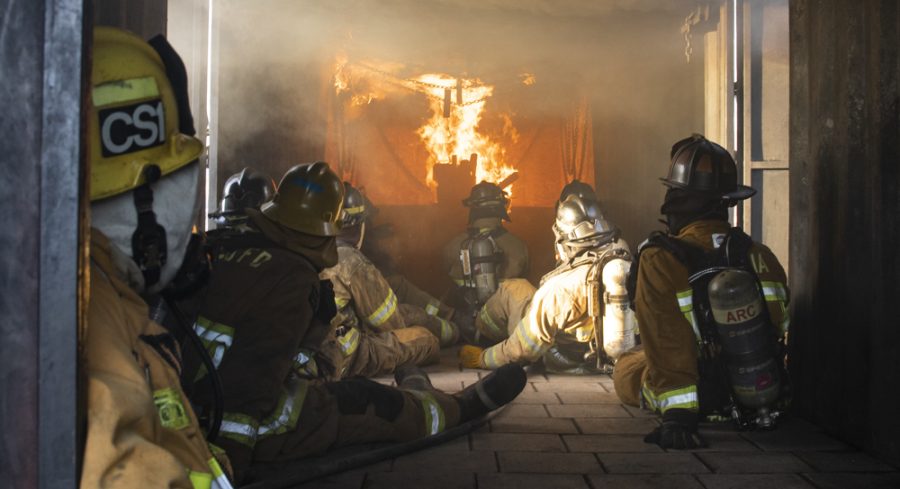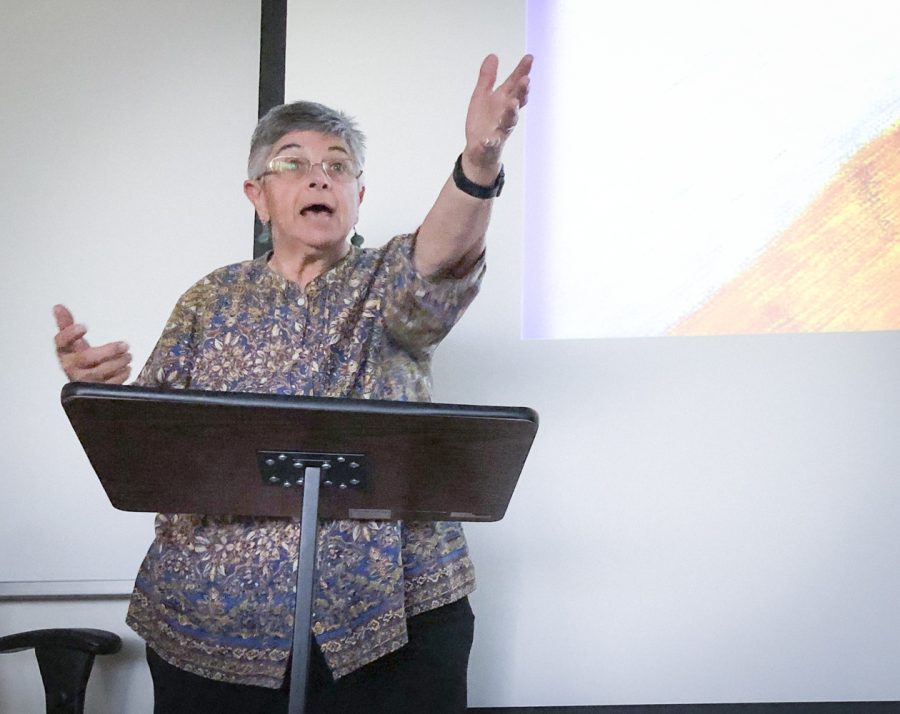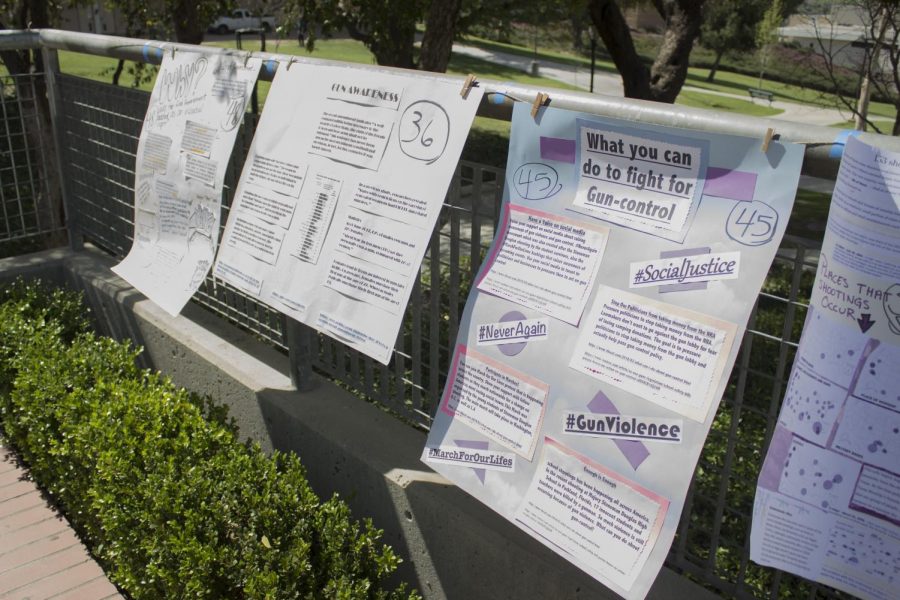The government owes American Indians $176 billion for the land being taken over by oil and real estate, but many people don’t know about the government’s lack of accounting for these lands.
“We need to have something in Times Square, in neon lights and maybe someone will notice what is going on,” said Eloise Cobell, member of the Blackfeet Nation of Montana.
Cobell, also an executive director of the Native American Community Development Corporation, spoke to Moorpark College students as well as the public on March 29, in the Performing Arts Center on campus at 10 a.m. about her ongoing battle with the government on reforming U.S government management of Indian Trust Assets. Cobell speaks out to the public in hopes to get people aware of what is really going on and to gain support for her cause.
After winning numerous court cases against the government, the fight continues and another trial will be taking place on April 11.
A documentary is currently being filmed to get the message out and hopefully spark attention in the media.
Cobell grew up on Blackfeet Nation being one of nine children. At the young age of four, Cobell proved to be a true activist when she refused to get up from a chair because she wanted to learn. She often heard her mother talk about how the “Indian agent” would not give them money. Later Cobell became Blackfeet Tribal Treasurer.
“The financial statements were just not making any sense to me,” said Cobell.
When non-Indian settlers were moving more and more West, they wanted more Indian land offering them healthcare benefits and money, but those promises were soon broken.
Oil wells sit on Indian property, but they are not paid directly for it. For years, Cobell looked out of her window everyday and see the oil wells, and finally she decided to take a stand.
“I called Washington and the higher ups many times,” Cobell said, “but there would still be no answer. I could not get anybody to do anything.”
Cobell called everyday until a meeting was set up. It was after this meeting that she decided to file the largest lawsuit in history. She did not have enough money to file the lawsuit, but by serving on the Women and Philanthropy Foundation, she gained connections.
The foundation was interested and helped raise $675,000. It was time to go to Washington, but Cobell was fearful and reached out to a friend. Expressing her concerns, her friend replied, “Elouise, if you don’t do it, then who will?”
“That was the last time I ever looked back,” said Cobell.
Luckily they received a great judge who ruled that the United States Government had to fix their accounting. As soon as the ruling took place, the government destroyed documents and checks that were never sent out. The case was won in 1999.
The only problem was that the majority of America was unawareof this.
“Why isn’t this on the front page of every newspaper in the United States?” asked Cobell.
In 1997, Cobell was awarded the MacArthur “Genius Grant” award which was perfect timing for those in the government whom called her stupid. This battle is still going and Cobell is not giving up.
Her sentiment that penetrated the halls of America’s bureaucracies is most clearly communicated as she stated, “this award screams to the heavens for justice.”

